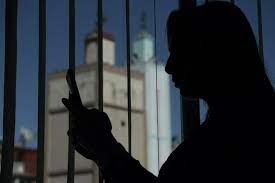LIVING in patriarchal realms is not without risk for women. Patriarchal societies devalue women and girls on the bases of sexism and misogyny, define and uphold restrictive gender roles, and are based on the heterosexual privilege and status quo of power.
In this ruthless system, even laws perpetuate inequality, because they are shaped by men and define their decisive sexist ideologies and agendas.
Sometimes, cultural theories are evoked to justify gender inequality, and on others, support is taken from concocted religious beliefs.
The murder of 22 years old Mahsa Amini has brought women into action in Iran what I would like to call the Iranian Feminist Movement in Action.
Mahsa while travelling with her family to the capital city of Tehran was arrested and detained by the state’s morality police for not complying with the country’s ultraconservative rules on ‘modest clothing’.
These rules were declared mandatory after the Islamic revolution of 1979 in Iran. She was beaten critically in a police van during going to the detention center and died on September 16, after three days of her arrest in police custody.
These dehumanizing acts plagued by violence are immensely upsetting. It is a blunder to call it an unfortunate happening, whereas it conforms to the systematic thread woven and entrenched in culture and society.
Instead of addressing the people, President Ebrahim Raisi’s strategies like tightening the restrictions on cyberspace to control people’s access to news further worsened the businesses and public distress.
Women face interpersonal vehemence in their houses, harassment at workplaces and streets, and now violence by the state police as well; which is a clear indicator that violence is structured in the roots of patriarchal societies.
To speak, argue, or debate based on reason rather than power is the common agenda that women practice for equality.
It is on the same basis that women in Iran have come out to stand against patriarchy, clerical control, religious bigotry, government impunity, and, instead of all this, to practice reason.
Their outcry at this time of grief and erupted anger cannot be bottled-up and they cannot be silenced by the state as they are steadfast and determined for change.
Though Iran’s military and Islamic Revolutionary Guard Corps (IRGC) have sanctioned to heighten their restrictions to stop the protest, however, they cannot undo women’s pledged persistence.
Women at large have shown solidarity with Mahsa Amini by burning their headscarves and cutting their hair, and chanting slogans, woman, and life, freedom against the patriarchal tool of “cover or suffer”.
Another patriarchal state- Pakistan, after Noor Mukadam’s murder, has undergone a similar callous murder of Sarah Inam, 37, a Pakistani expatriate.
I think, the Twitter trend “justice for Sarah” is not enough, but the killer must not let escape the trial, and justice should be done on an urgent basis without delay.
Along with women, the other suffering community is transgender people who despite passing the Transgender Persons (Protection of Rights) Act, 2018 in Pakistan have not attained their rights practically.
Tran’s people live in poverty at high rates and experience a lack of healthcare coverage and the least legal protection.
They are linked with ruthless stigmatic phrases like mentally ill, sexually predatory, and socially deviant.
They are easily ridiculed, harassed and bullied because society does not want to understand them.
Nowadays in Pakistan, people with hypersexual disorder are playing with the facts of Gender Dysphoria, twisting realities, and building false propaganda against the Transgender Persons [Amendment] Bill 2022.
An organized campaign has been launched through loudspeakers and social media against the essential rights of transgender persons.
Recently, a Senator of the self-proclaimed Islamic party filed a petition in Federal Shariat Court against the bill.
Though bringing matters into court is one’s fundamental right but it is better to invite transgender people and settle the debate in the legislative house.
Only Parliament is the appropriate, constitutional and supreme forum. Furthermore, there must be representation from the transgender community in National and Provincial Assemblies.
India is another patriarchal republic, where women and trans people are victimized in different strata of life and are left to pay the price of society’s structural faults.
Recently, in the Indian state of Madhya Pradesh, a man chopped his social media friend over the victim’s transgender identity.
Later, in another GBV incident, secretly filmed clips of the women students of a public university in Chandigarh were uploaded on social media.
One student’s dying of suicide and several incidents of self-harm have also been reported. Such incidents further mark that women are not safe in any patriarchal society.
It is a fact needed to be acknowledged that the rights of women cannot be infringed. Despite all violence, gender inequality, and feticide, women are struggling against inequality and the power structure of patriarchy.
In Pakistan, they are speaking up not only for their rights but for the rights of the transgender community as well.
Likewise, women have not surrendered in front of the Taliban’s gun culture in Afghanistan and have come out for their rights to education.
Russian women debunked the romantic heroics of war and protested against this absurdity with the slogan- say no to war.
It is pretty right to say that women can accomplish every goal if they are empowered.
Internationally, the system is being revolutionized, as on the 77th General Assembly of the United Nations, Germany’s Foreign Minister spoke for peace and implementation of a feminist foreign policy that aims to strengthen women’s rights and resources through diplomatic relations.
There is a need to revolutionize societies where women are empowered and fully equipped with their rights, though it is through feminist diplomacy or through speaking up, protesting or marching.
Source: Pakistan Observer (Editorial) By: Farkhanda Shahid Khan


